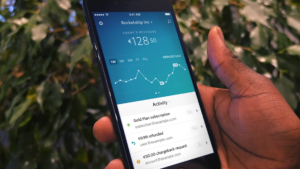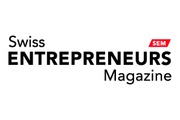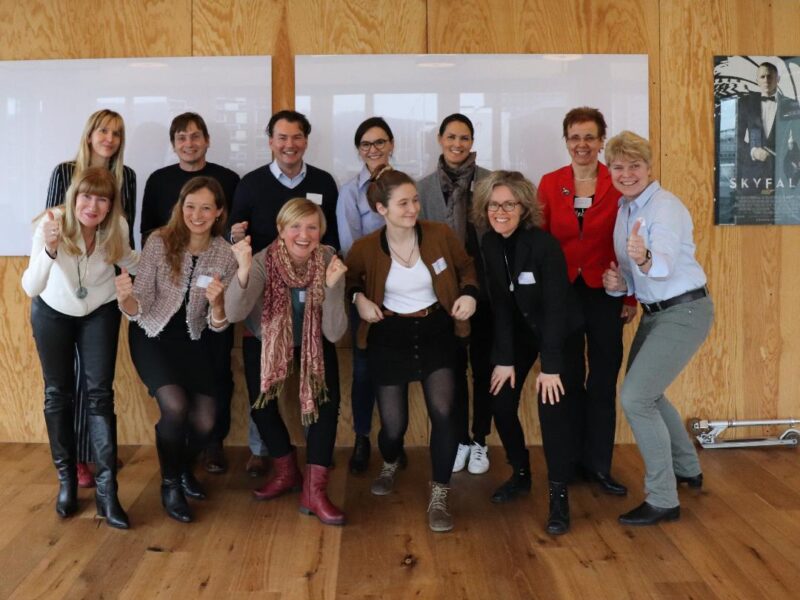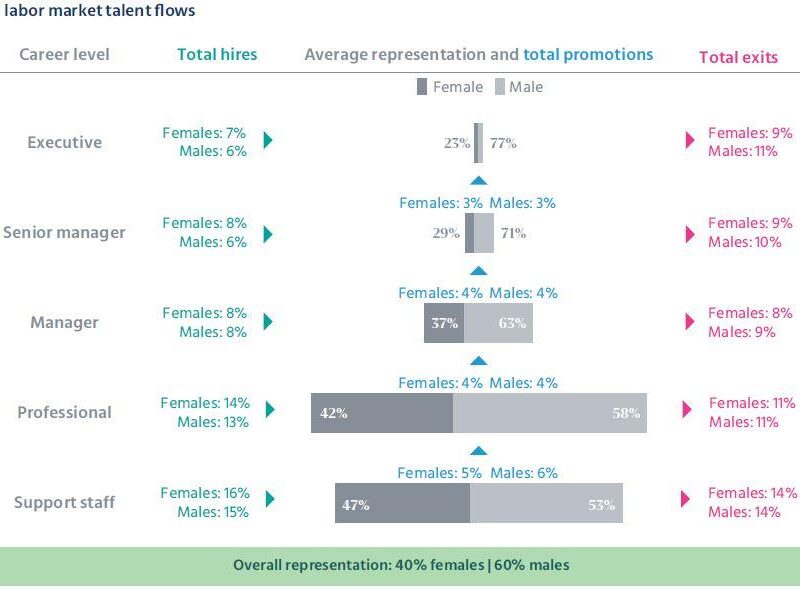INVESTMENT IN EUROPEAN TECH COMPANIES AT AN ALL-TIME HIGH

Photo courtesy of Tech.eu
- Early-stage and late-stage funding quadruples, growth stage startups receive twice as much capital as three years ago
- European fintech, Software as a Service and medtech startups receive particularly large amounts of capital
- Most of the venture capital flows into startups from Germany, UK, and France
Over the course of the past twelve months, Stripe and Tech.eu have analysed funding provided to European startups during the last three years. The results showed that early-stage and late-stage investments quadrupled, with startups in the growth phase now receiving twice as much capital as three years ago. Across all startup maturity levels, the fintech, Software as a Service (SaaS) and medtech industries receive the most venture capital. The mobility and transportation sector received a particularly high amount of capital, especially in later phases. While startups from Germany, the UK and France lead the way in terms of investment amounts, Sweden and Switzerland are also in strong positions across all phases. It is striking that more and more capital is coming from outside Europe.
Startup funding at a historically high level
Investments in the European tech industry have increased significantly. Over the last three years, more capital has been invested than ever before. According to the research by Stripe and Tech.eu, investment in Europe’s early-stage technology (EST) in Europe has increased fourfold since H1 2015, going from €875m invested in the first six months of 2015 to more than €3.6bn in H1 of 2018.The total capital invested in early-stage startups in 2017 was €19bn, which is a 36% increase from €14.3bn in 2016. Particularly in the last three years, investment in European startups has experienced unprecedented growth in both total funding and the volume of investments made.
The total capital invested into European growth-stage companies was €30bn in more than 2,300 rounds between 2016 and 2018. Both the total investment in growth startups and the number of funding deals have roughly doubled in the last three years. Overall, more than 2,000 startups have reached growth-stage, with a median size of investment of around €10m.
2019 is already a record year for late-stage investment in European technology companies. If the current trend continues, we are likely to see around 70 mega funding rounds in 2019, which would be more late-stage financing deals in a year than in the previous three years combined. In the first three quarters of 2019 alone, more than 52 deals of €100m or above have been recorded across Europe, including for Deliveroo (UK), N26 (Germany), Glovo (Spain), Doctolib (France), Klarna (Sweden) and OutSystems (Portugal). This is already more than in 2017 and 2018 combined, and nearly four times as many as in 2016. The data also shows a fourfold increase in total late-stage investment in less than three years: from €3bn worth of mega funding rounds in 2016 to to €12bn in the period Q1-Q3 2019.
Startups from France, UK, Germany and Sweden are strongest when it comes to funding
The figures reveal that France and the UK are head to head when it comes to EST investment. The research shows that France generated almost a quarter (24.04%) of EST deals in Europe, just shy of the UK’s 24.59% piece of the EST investment pie. This highlights the growth of France’s startup scene over the past five years. Other European countries such as Spain (3.9%) and Italy (1.92%) received considerably less capital, as did Germany, which came a longway behind the two leading countries with 12.65%.
However, the figures revealed that the total financing going to British, German, French and Swedish growth startups in this time period exceeds €21bn. That equals 70% of the investment, nearly double the amount raised by the tech companies of the next 20 countries in the ranking. The UK remains the clear leader in growth-stage investment (€8.82bn). France (€5.44bn) and Germany (€4.85bn) are behind, but are catching up fast: the research conducted by Stripe and Tech.eu shows that between 2017 and 2018, total investment into growth startups in both countries grew by roughly 27% and 26%, respectively, whereas the number in the UK virtually stagnated.
Switzerland ranks 5th in Europe with a solid plus of over 40 percent (2017-2018), and received capital investments of €1.26bn in total over the past three years. It is followed by Spain (€1.13bn), the Netherlands (€0.91 billion), Ireland (€0.78 billion), Finland (€0.71 billion), Belgium (€0.56 billion), Russia (€0.56 billion), Denmark (€0.44 billion) and Italy (€0.34 billion). Austria ranks 15th with €246m.
Germany and the UK are the power engines of the European late-stage tech ecosystem. From 2015 to Q3 2019, just south of €15.3bn were invested in mega funding rounds, which is more than all other countries combined during that time period (€14.7bn). Scale-ups based in the UK and Germany are consolidating their advance in 2019, and stay ahead of Israel, Sweden and France, which complete the top five list. They are followed by Switzerland and, with some margin, Spain, Romania, the Netherlands, Portugal and Finland. Ireland and Austria are far behind, ranking 13th and 15th respectively. Belgium (+ 42.94%), Switzerland (+ 40.24%), France (+ 26.84%) and Germany (+ 25.92%) achieved the highest growth rates between 2017 and 2018, while Spain (- 27.68%) and Finland (- 22.02%) saw the largest declines over the same period.
Non-European investors are largely responsible for the surge in funding for European tech
The most active investors in European growth startups from 2016 to 2018 were Bpifrance (55 rounds), Balderton Capital (40 rounds), Idinvest Partners (36 rounds), Index Ventures (34 rounds) and Partech Ventures (33 rounds).
Looking only at late-stage investment in European tech companies, it is noticeable that 75% of the money invested came from outside of Europe. Investors are a diverse mix of foreign PE and VC firms, big corporations such as Microsoft and Amazon, hedge funds, state funds, etc.
Of the top 10 investors in mega financing rounds for European tech scale-ups, more than half (6) are headquartered outside of Europe (US, Japan, South Africa, Hong Kong, Singapore and China).
Japan’s SoftBank is responsible for a massive influx of late-stage funding in Europe. Through its Vision Fund, it has pumped nearly €4bn into European late-stage startups from 2015 to Q3 2019, while the investor in second place, Insight Venture Partners (US), invested ‘only’ about €1.4bn during that time period.
Looking only at Europe-based investors during the same time frame, the UK is leading with 30 firms participating in late-stage funding rounds, compared to 20 in France and 17 in Germany.
Fintech, medtech and software startups are leading in terms of influx of capital
The most attractive industries for early-stage and growth-stage funding were fintech, medtech, Software as a Service, analytics, and mobility/transportation. In the late stage, fintech, mobility and transportation, software, foodtech and medtech are the most attractive.
From 2015 to Q3 2019, most of the late stage capital went to Delivery Hero (Germany), Spotify (Sweden), Roivant (Switzerland), Deliveroo (UK), and Auto1 (Germany).
Trend: Fewer IPOs and acquisitions
As more late-stage funding flows to European technology companies, more companies are opting to remain private and scale independently. While high-profile public listings from European tech scale-ups such as Spotify, Delivery Hero, or Farfetch occurred in recent years, the number of IPOs is dropping fast.
While there were 36 European tech IPOs at the peak in 2017, only 21 were recorded in 2018. With only five tech IPOs recorded so far in 2019, the number continues to steadily decline.
The same is true for acquisitions, as an increasing number of European tech scale-ups carve their own paths. The data shows that there were 629 acquisitions of European tech companies in 2015, but that number dropped nearly 12% to 555 M&A deals by 2017, and in the first three quarters of 2019 to a mere 273 exits by acquisition.
Methodology
Stripe and Tech.eu’s research specialists collaborated to produce three reports in the last twelve months, looking at investments made during different startup maturity phases. The reports analyse the state of European technology policy, ecosystems and infrastructure.
The reports deal with the financing of startups from 2016 to 2019. Since November 2013, Tech.eu has been continuously monitoring over 200 sources of news and information in different European regions and languages. Reports from its network of analysts were also taken into consideration. In many cases, the transaction volume was not disclosed, in which cases estimates were used.
The authors have decided to include non-EU countries such as Israel, Russia, Turkey, Norway, Switzerland and others, where available, in this analysis as they consider them an integral part of the European technology industry. This is in line with Tech.eu‘s general editorial policy.
For more information:





